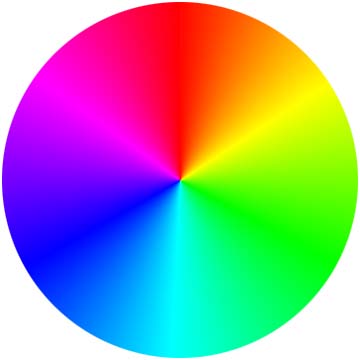So far this Encyclopaedia has mainly dealt with mages. There’s a good reason for this – mages represent the greatest concentration of power in the magical world. They don’t rule every corner of it, but it’s very much built in their image.
That said, the vast majority of humans aren’t mages. In fact, most estimates guess at a ratio of somewhere around 10,000 normals to 100 sensitives to 10 adepts to 1 mage: in other words, mages probably only make up around 0.01% of the population. This entry will talk about the remaining 99.99%. Note that just like magic types these categories are fuzzy, particularly between sensitive and normal and between adept and mage.
Normals
The majority of the population of the Earth are normals. This is the name that mages and adepts give to them – they don’t call themselves ‘normals’ and in fact don’t really call themselves anything at all, since if you don’t believe in magic you don’t need a name for people who can’t use it. That said, if they were to choose a name ‘normal’ perhaps isn’t so different from how they see themselves.
Normals can neither perceive nor use magic. It’s a closed book to them: they couldn’t figure it out if they tried. In practice there’s almost zero chance that they would try, because normals have a strong psychological disinclination to believe in magic. Given any situation which has a magical and a non-magical explanation, they’ll pick the non-magical explanation so long as it’s even the tiniest bit believable. If they see a picture of a spell they’ll assume it’s Photoshopped and if they watch a video of magic they’ll assume it’s CGI and if they see a mage using their powers they’ll assume it’s a trick. After all, this is the 21st century – you’d have to be nuts to believe in that stuff, right?
It’s possible to get a normal to believe in magic, but it’s very difficult; you have to do the equivalent of hitting them over the head with it, not once but over and over again. Doing so is rarely a kindness, as a normal who does come to believe in magic will be seen as crazy by all his friends. Most mages find that it’s much easier to let them come up with their own explanation of things.
Sensitives
Like normals sensitives can’t use magic, but unlike normals they can feel it. Sensitives are open to a wider world than normals – all the supernatural elements in the world around us, the weird and the fantastic and the terrifying and the wonderful and the strange.
It’s hard for a normal to understand the workings of a sensitive’s mind. Everything is more intense for sensitives – they feel more strongly, perceive more clearly, and experience everything to a heightened degree. This can be either a blessing (sensitives tend to be very good at anything that requires perception or creativity) or a curse (sensitives have much higher rates of mental instability or outright insanity than normals and often have trouble fitting into everyday society) and often both. Sensitives tend to be naturally drawn to each other and instinctively recognise one another as kindred spirits.
From the point of view of mages and adepts the most important thing about sensitives is that they don’t have the aversion to magic that normals do, so if they see magic being used there’s a much higher chance that they’ll figure out what’s really going on. In fact, sensitives can actually perceive magic to a limited degree. They can’t analyse it with the precision that a mage can, but they can sense that something weird is happening, even if they don’t know exactly what. This means that a sensitive is much better equipped to enter the magical world.
That said, most don’t. The majority of sensitives are born, live out their lives, and die without ever getting involved in magical society. From their point of view this is probably for the best. A sensitive’s abilities give them a way in to magical society but don’t do anything to help them survive in it, and unusual as they are sensitives fit better into the normal world than into the magical one.
Adepts
Depending on how you look at it an adept is either a sensitive who can also use magic, or a mage who can only cast one spell. Adepts can actually access the magical spectrum, if only a small sliver of it, giving them one particular ‘trick’ that they can use.
The life of an adept can be hard. They fit into mundane society even less well than sensitives do – sensitives can feel that there’s a wider world out there, but adepts can actually reach out and touch it, and that doesn’t make it easy to blend into normal life. On the other hand, adepts don’t fit into mage society either. Mages tend to look down on adepts, and even if they didn’t most adepts just aren’t equipped to handle the sorts of things mages can. Caught between the two worlds, it’s difficult for an adept to find their place.
There’s a lot to be said about adepts, and the questions of exactly what they can do, their history with mages, and the difference between a mage and an adept will be the subject of a future Encyclopaedia Arcana entry.

